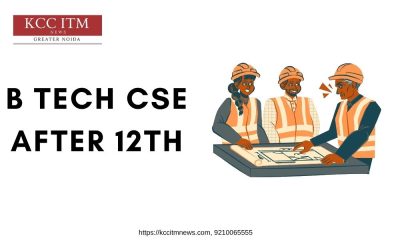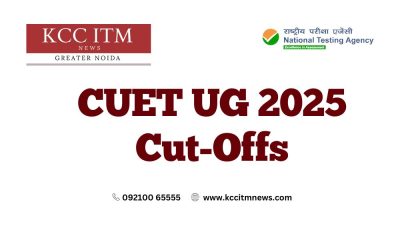BCA
BCA Course Fees
The Bachelor of Computer Applications (BCA) has emerged as a highly sought-after undergraduate degree for students keen on a career in the dynamic IT sector. Offering a strong foundation in computer science and its applications, a BCA degree opens doors to diverse job roles. However, a crucial factor for aspiring students and their families is understanding the associated course fees. This blog delves into the various aspects influencing BCA fees across India, providing a comprehensive overview to help you make informed decisions.
Factors Influencing BCA Course Fees
BCA course fees in India are not uniform; they vary significantly based on several key factors:
- Type of Institution: Government colleges generally have lower fees compared to private institutions.
- Location: Colleges in metropolitan cities often have higher fee structures due to better infrastructure, faculty, and exposure.
- University Affiliation: Fees can differ depending on whether the college is affiliated with a central, state, or deemed university.
- Infrastructure and Facilities: Colleges with state-of-the-art labs, modern libraries, and other advanced facilities might charge higher fees.
- Faculty Expertise: Institutions boasting highly experienced and renowned faculty members may have a premium fee structure.
- Placement Records: Colleges with strong placement statistics and a track record of high salary packages often command higher fees.
- Specializations Offered: BCA programs with specialized streams like Data Science, Cloud Computing, or Cybersecurity might have slightly higher fees due to the specialized curriculum and resources.
- Mode of Study: Regular, full-time BCA programs typically have higher fees than distance learning or online BCA courses.
BCA Course Fees in Government Colleges
Government colleges are often the preferred choice for many students due to their significantly lower fee structures and credible academic standing. These institutions are usually funded by the government, allowing them to offer quality education at a fraction of the cost of private colleges.
Typically, the annual BCA fees in government colleges can range from ₹10,000 to ₹50,000. This makes them highly accessible for a wider range of students. Examples of government colleges offering affordable BCA programs include various state university departments and central universities. For instance, some constituent colleges of Delhi University and universities like Banaras Hindu University (BHU) offer BCA or equivalent courses with annual fees often falling within this range.
These fees generally cover tuition, examination fees, library charges, and basic laboratory access. Additional costs might include hostel fees (if applicable), books, and personal expenses.
BCA Course Fees in Private Colleges
Private colleges, while offering diverse programs and often more modern infrastructure, generally have higher BCA course fees. These institutions rely on tuition fees to fund their operations, infrastructure development, and faculty salaries.
The annual BCA fees in private colleges can range from ₹50,000 to ₹2,50,000 or even higher. Some well-known private universities with excellent facilities and placements might charge significantly more. For example, prominent private universities across India have annual BCA fees that can go up to ₹1.5 lakhs to over ₹2 lakhs.
When considering private colleges, it’s essential to look at the overall value proposition, including infrastructure, faculty, industry tie-ups, and placement opportunities, as these often justify the higher investment.
BCA Course Fees in UP (Uttar Pradesh)
Uttar Pradesh, being a large state with numerous educational institutions, offers a wide spectrum of BCA programs with varying fee structures. You can find both government and private colleges providing BCA degrees.
In government colleges in UP, the annual BCA fees can be as low as ₹9,000 to ₹50,000, similar to the national average for government institutions. For instance, universities like Chhatrapati Shahu Ji Maharaj University (CSJMU) Kanpur or Ewing Christian College, Allahabad, offer relatively affordable BCA programs.
Private colleges in Uttar Pradesh, especially in cities like Noida, Ghaziabad, and Lucknow, tend to have higher fees, ranging from ₹50,000 to ₹1,50,000 or more per annum. Reputed private institutions in UP can have total course fees extending up to ₹4-5 lakhs for the entire three-year program.
BCA Course Fees in Delhi
Delhi, a major educational hub, presents a wide array of options for BCA aspirants. The National Capital Region (NCR) also includes many colleges in neighboring areas like Noida and Gurgaon, which are popular among students seeking BCA programs in this region.
Government colleges in Delhi, such as those affiliated with Delhi University (DU) or Guru Gobind Singh Indraprastha University (GGSIPU), offer BCA or equivalent courses with annual fees typically ranging from ₹10,000 to ₹50,000. Jamia Millia Islamia also offers highly subsidized programs.
Private colleges in Delhi and the NCR, known for their modern amenities and industry connections, have BCA fees that can range from ₹70,000 to ₹2,00,000 or even higher per year. Institutions like IMS Noida, VIPS Delhi, and other well-known private universities in the region fall into this fee bracket.
Conclusion
Choosing a BCA program involves carefully considering the course fees alongside other vital factors like curriculum, faculty, infrastructure, and placement records. While government colleges offer a more budget-friendly option, private institutions often provide specialized programs and extensive industry exposure that can be a valuable investment for a promising career in computer applications. By understanding the fee structures across different types of colleges and regions, aspiring students can make an informed decision that aligns with their academic goals and financial capabilities.
BCA
Is Maths Compulsory for BCA
Is maths compulsory for BCA? This question is often asked by students in India who have completed their 12th and want to pursue a Bachelor of Computer Applications and follow our career in the computer science field. To put it simply, the answer is both yes and no, because the requirement for maths varies from university to university.
Mathematics is not an entirely mandatory subject for admission in BCA; however, some institutions require the subject to be eligible for the course. This article will break down the necessary requirements for you to understand whether you can do BCA without maths, so that you can make an informed decision regarding your career in the IT field.
Understanding the University’s Specific Requirements for Admission to BCA
The requirement for mathematics in BCA admission depends on the college or university you are applying to. In most institutions, there is no rigorous requirement to have mathematics as a compulsory subject in the 12th grade to secure admission in BCA. Students from any stream can be eligible for the undergraduate course.
However, there are some prestigious colleges that have maintained the requirement of mathematics as a prerequisite for admission. Some of the examples can be found below:
• Delhi University (DU)
• Guru Gobind Singh Indraprastha University (GGSIPU)
• Banaras Hindu University (BHU)
• Jamia Milia Islamia (JMI)
• NMIMS Mumbai
• Loyola College Chennai
Apart from these, many more institutions, especially the public ones, have made it compulsory for the students to have Mathematics in 10+2 to provide admission in the BCA program.
Then there are several reputed colleges and Universities that welcome students without having a mathematics background.
• KCCITM
• Manipal University
• Christ University
• Symbiosis Institute
• St. Xavier’s College, Mumbai
• IGNOU
• Amity University
• Lovely Professional University
These institutions provide admission to students from any stream in the BCA program, but may have varying eligibility criteria such as a minimum aggregate of 50%, 10+2 from recognised boards, English as a compulsory subject, etc. Therefore, it is recommended that you first verify these requirements from their official website and then proceed with the admission process.
Significance of Maths in BCA
If you are a non-mathematics background student who has completed his or her 12th, you need to understand that the course curriculum of BCA involves mathematical concepts. Therefore, even if you secure an admission in BCA without maths, you will still have to acquire relevant mathematical skills to successfully complete the program.
BCA is a 3-year undergraduate program, divided into 6 semesters and most of them contain mathematical topics in some form. These can include:
• Set theory and function
• Data structures and algorithms
• Matrix theory and determinants
• Basic calculus and coordinate geometry
• Limits, differentiation and continuity
• Discrete mathematics
• Algebra, statistics and probability
• Vector calculus
Mathematics is required in the BCA program as it helps you in understanding the logic of computer programming languages. The subject is critical and provides a foundation for comprehending complex algorithms and advanced programming concepts. It also helps you improve your problem-solving skills, which is extremely essential in web application development, software engineering, networking and data structures.
This is the main reason why some universities have been mandated to provide BCA admissions to students with a mathematics background. However, it does not mean that you cannot get admission in a prestigious institution if you did not have the subject in class 12th.
Pros and Cons of Pursuing BCA Without Maths
If you do not come from a mathematics background in class 12th, and still want to get admission in BCA, then you need to understand the pros and cons of the same.
Benefits
• You can easily get accepted into institutions that provide admission in BCA without maths.
• You are still eligible to enter the IT field and become a computer or software engineer.
• You can also choose numerous alternative career paths such as digital marketing, web development, UI/UX design, etc, where the need for maths is limited.
Challenges
• You can find it difficult to understand advanced topics such as data structures, algorithms and artificial intelligence.
• Your career growth opportunities in high-level engineering profiles such as data science and AI, can be limited.
• Difficulty in achieving specialisation when you decide to pursue higher studies in fields such as MCA and CS.
How to Succeed in BCA Without Maths?
Without a mathematical background, it might be difficult for you to grasp an understanding of advanced concepts in BCA. However, with hard work and dedication, you can overcome this challenge and successfully complete the BCA program.
• Conduct thorough research to understand the specific requirements of the institutions you are targeting for BCA admission.
• Attend foundation courses and certifications in discrete mathematics, which can help you bridge the mathematics gap.
• Develop logic building capabilities to build a promising foundation for learning programming languages such as C++, Python and JavaScript.
• Focus on career paths such as web design and development or IT management, where the requirement of mathematics is less critical.
In hindsight, it can be said that getting admission in BCA without mathematics is possible; however, it does require more hard work and dedication to build on reasoning and logical thinking capabilities. If you are interested in the computer science field and consider brushing up on your mathematics skills to achieve a competitive advantage.
-

 b com8 years ago
b com8 years agoB.Com after 12th
-

 MBA1 month ago
MBA1 month agoWhat is the Duration of the MBA Course?
-

 BJMC1 month ago
BJMC1 month agoBachelor of Journalism and Mass Communication
-

 Engineering1 month ago
Engineering1 month agoB Tech CSE after 12th
-

 CUET1 month ago
CUET1 month agoCUET Counseling 2025
-

 CUET1 month ago
CUET1 month agoCUET UG 2025 Cut-Off
-

 Engineering1 month ago
Engineering1 month agoTop Reasons To Choose BTech After 12th
-

 MBA1 month ago
MBA1 month agoHow Many Types of MBA Courses?


